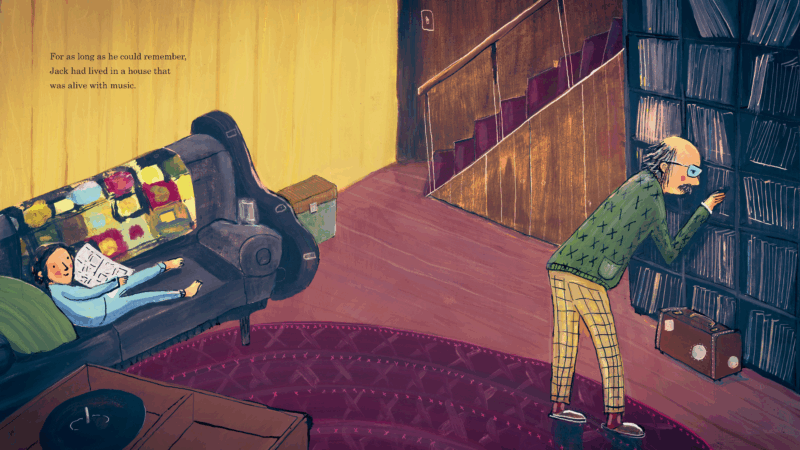‘Endling’ is a shape-shifting debut that takes on heavy themes with humor
George Bernard Shaw once said that the privilege of joking in public should only be granted to people who know thoroughly what they are joking about. I thought of his words as I devoured Endling, the virtuosic debut novel by Maria Reva, a Canadian writer who was born in Ukraine and still has family there.
Starting out as a straightforward story about a Ukrainian biologist, this witty, shape-shifting book turns into something trickier and more interesting. Like so many works from or about the former Soviet bloc, Endling takes on bleak subjects — environmental ruin, the business in brides, the war in Ukraine — and dresses them up in playful irony.
Its heroine, Yeva, is a rogue ecologist who lives in a mobile lab and spends her time collecting and housing snails facing extinction. Her favorite is Lefty, a tree snail who’s an endling — the term for the last surviving member of a species.
Yeva funds her mission by working for Romeo Meets Yulia, a Canadian company that deals in “romance tours” to Ukraine — a euphemism for the mail-order bride business. She’s in it for the paycheck, not for a husband, let alone for sexual encounters.
Just as she’s despairing over her failure to save the snails, Yeva meets two other romance tour workers — gorgeous Nastia and her brainy sister Sol, the daughters of a famous Pussy Riot-style feminist who has gone missing.
Nastia cooks up a plot to kidnap a dozen foreign bachelors who’ve come to Kyiv looking for wives. It’s a PR stunt to draw attention to the demeaning traffic in Ukrainian brides. Frazzled and pliant, Yeva lets them use her lab to transport their hostages, even taking the wheel.
As they drive through the countryside, Nastia’s scheme is going just as planned … until the bombs start falling. Vladimir Putin has begun his invasion.
At precisely this point, Endling pivots, and like Percival Everett’s Erasure or Susan Choi’s Trust Exercise, the frame shifts to make us question what we’ve been reading. In Part 2, we begin following the author’s fictional avatar, named Maria Reva, who lives in her parent’s attic in Vancouver and is having an artistic crisis.
Not only does she owe her publisher a book, but the one she’s working on — the one we’ve just been reading — fills her with shame. It deals in clichés about Ukraine — especially the bride business — clichés that pander to Western readers. And the war makes things even worse. How dare Maria write from the safety of Canada about the home country that’s currently fighting for its life?
After a bevy of metafictional hijinks, Reva eventually takes us back to war-torn Ukraine where Yeva, Nastia, and Sol must figure out what to do with their bachelors. I won’t say what happens, but I do want to assure you that all of Reva’s many strands — the war, the snails, the bride business, the kidnapping, Maria’s writerly anxiety and family ties — dovetail brilliantly.
Along the way, characters get gunned down, schlemiels become heroic, and we wonder whether Ukraine, like Lefty the snail, might be an endling?
One can’t juggle all these balls without being a nifty writer, and Reva is that. I wish I could read you the delightful page-long passage in which Yeva explains why snails are marvelous. But it’s too long. So instead, here is Yeva thinking bitterly about why they’re not popular:
Snails weren’t pandas — those oversize bumbling toddlers that sucked up national conservation budgets — or any of the other charismatic megafauna, like orcas or gorillas. Snails weren’t huggy koala bears, which in reality were vicious and riddled with chlamydia. Nor were snails otters, which looked like plush toys made for mascots by aquariums, despite the fact that they lured dogs from beaches to drown and rape them.
A crunch under the boot. A speck to flick off a lettuce leaf. … Snails were just that — snails.
Of course, Yeva and Reva believe that snails, like Ukraine itself, may not be adored by the world at large but deserve to survive, and even thrive in a world that threatens them with extinction. Indeed, for all her humor and brio — she’s never, ever preachy — Reva knows what she’s joking about. Suffused with yearning for what’s being lost, Endling leaves you asking one painful question: When creatures or nations are fighting for their very existence, shouldn’t we try to help them?
Swiss Alpine bar fire claims 41st victim, an 18-year-old Swiss national
Swiss prosecutors have opened a criminal investigation into the owners of Le Constellation bar in the ski resort of Crans-Montana, where a fire in the early hours of Jan. 1 killed dozens.
Sunday Puzzle: Rhyme Time
NPR's Ayesha Rascoe plays the puzzle with WBUR listener Laurie Rose and Weekend Edition Puzzlemaster Will Shortz.
Alcaraz beats Djokovic to become the youngest man to complete a career Grand Slam
The 22-year-old Spaniard's win against 38-year-old rival Novak Djokovic at Sunday's Australian Open makes him the youngest male player to win all four major tournaments.
You already know the song — now, ‘The One About the Blackbird’ is also a picture book
In The One About the Blackbird, a young boy learns to play guitar from his grandfather. And there's one song in particular that they love…
In the world’s driest desert, Chile freezes its future to protect plants
Tucked away in a remote desert town, a hidden vault safeguards Chile's most precious natural treasures. From long-forgotten flowers to endangered crops.
At a clown school near Paris, failure is the lesson
For decades, students at the Ecole Philippe Gaulier have been paying to bomb onstage. The goal isn't laughs — it's learning how to take the humiliation and keep going.







